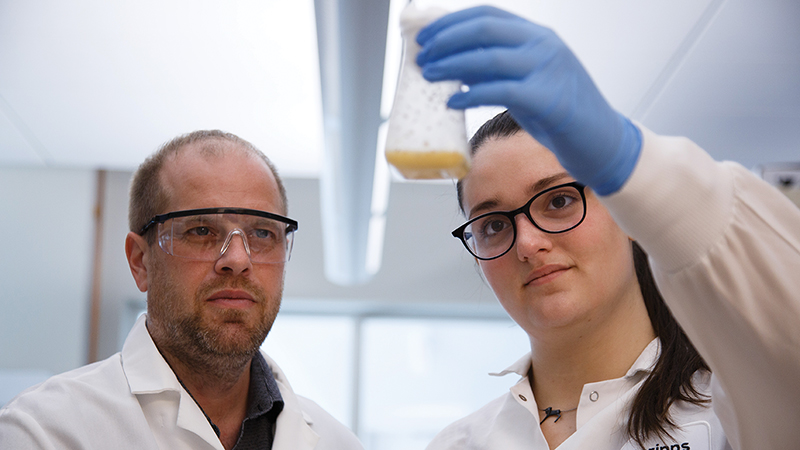Through spinoff companies, eye-opening internships and its draw of other scientific organizations, Scripps Research has infused a new kind of energy into Florida’s Palm Beach County
In 2003, Florida government leaders concluded that the state needed to diversify Florida’s narrow economy beyond tourism, agriculture and real estate.
With new federal economic stimulus dollars available, their search took them to Scripps Research in La Jolla, California. Over about 50 years, the institute has become the nucleus of a thriving bioscience, research and university sector in San Diego.
Just 15 years after the successful recruitment of Scripps Research to Jupiter, Florida, a cluster is building there, too. The Max Planck Society of Germany opened its only U.S. institute next to Scripps Research. Florida Atlantic University, meanwhile, is adding a new neuroscience research building and data science program. Multiple other life science companies are moving into the Donald Ross Road innovation corridor nearby.
In fact, a study that uses industry-standard evaluation methods for economic impact has calculated that the Florida campus of Scripps Research has contributed at least $3 billion to the economy since its founding.

Using a model known as IMPLAN, the study considered direct spending on wages, services and supplies, and then calculated indirect spending by businesses in the company’s supply chain and induced spending by workers on items such as real estate, meals, taxes, insurance and other items.
Scripps Research also recently looked back at the intellectual property created from its discoveries in Florida, revealing 162 clusters of patent applications, each cluster containing up to six patent applications. Patents are a key marker of innovation and potential economic growth.
Douglas Bingham, executive vice president of Florida Operations, noted that Palm Beach County students also have benefitted from the institute’s presence, marking an economic and societal value likewise not reflected in the economic impact analysis.
“Our undergraduate internship program has enabled more than 300 Florida Atlantic University Honors College STEM majors to conduct their theses work and gain valuable lab experience,” Bingham says.
Likewise, the Kenan Fellows internship program has enabled 177 Palm Beach County high school students and 24 science educators to gain lab experience alongside Scripps Research scientists. “The impact of that experience on the lives of those participants really cannot be measured,” Bingham says.